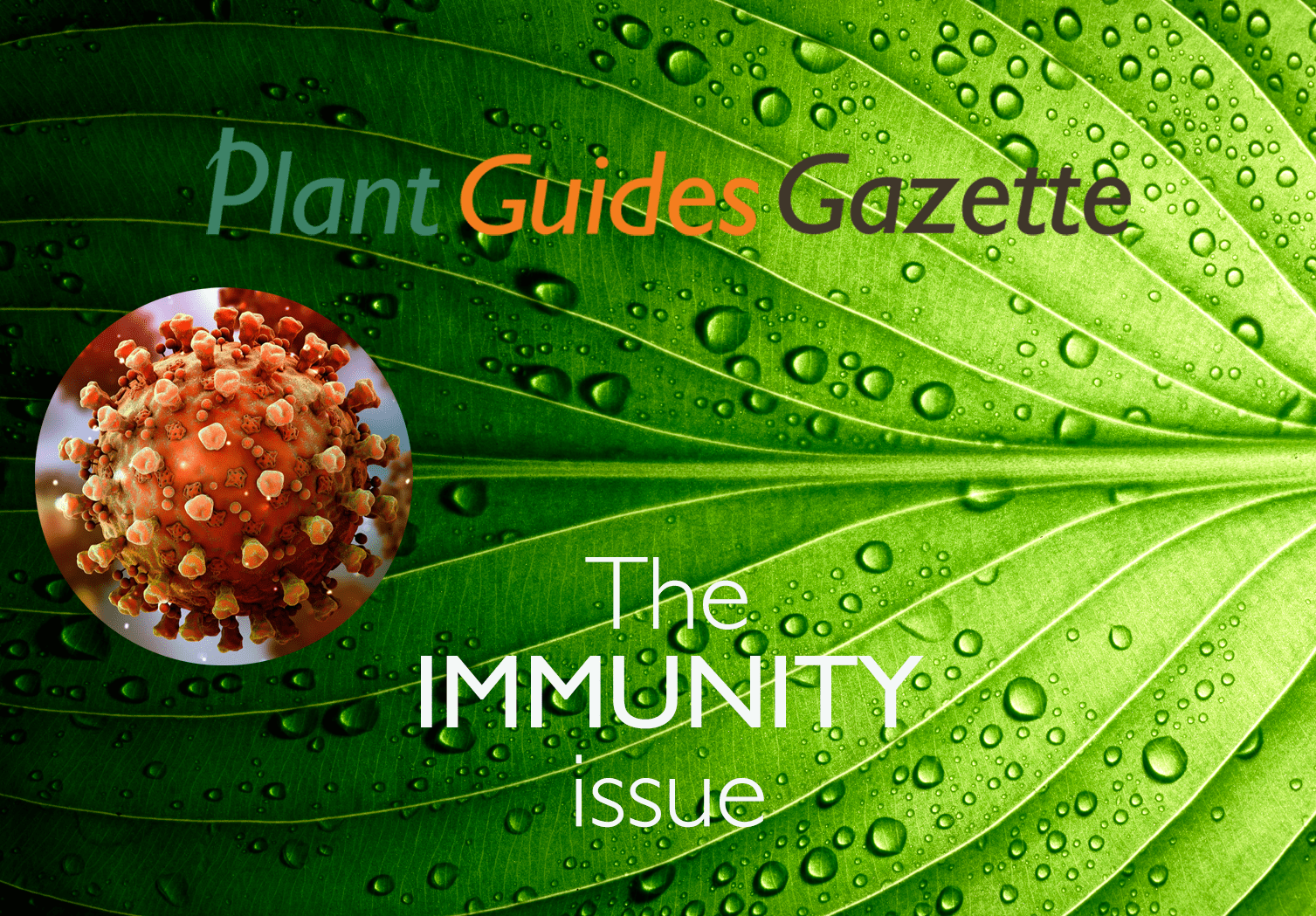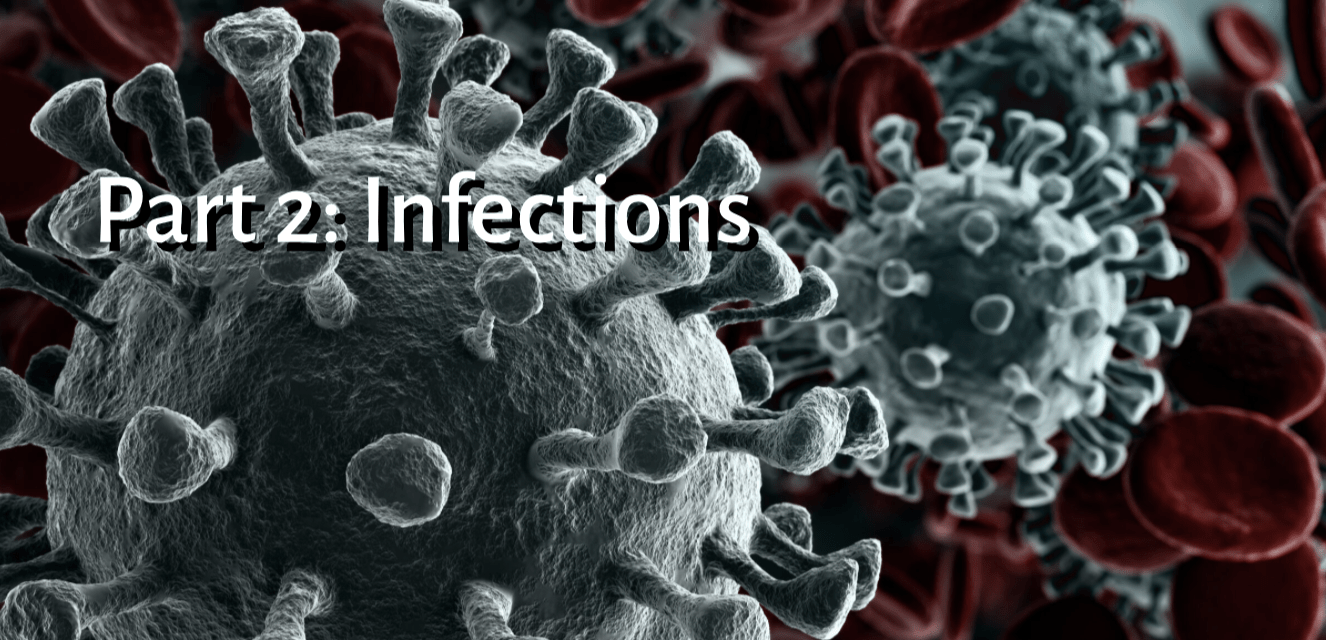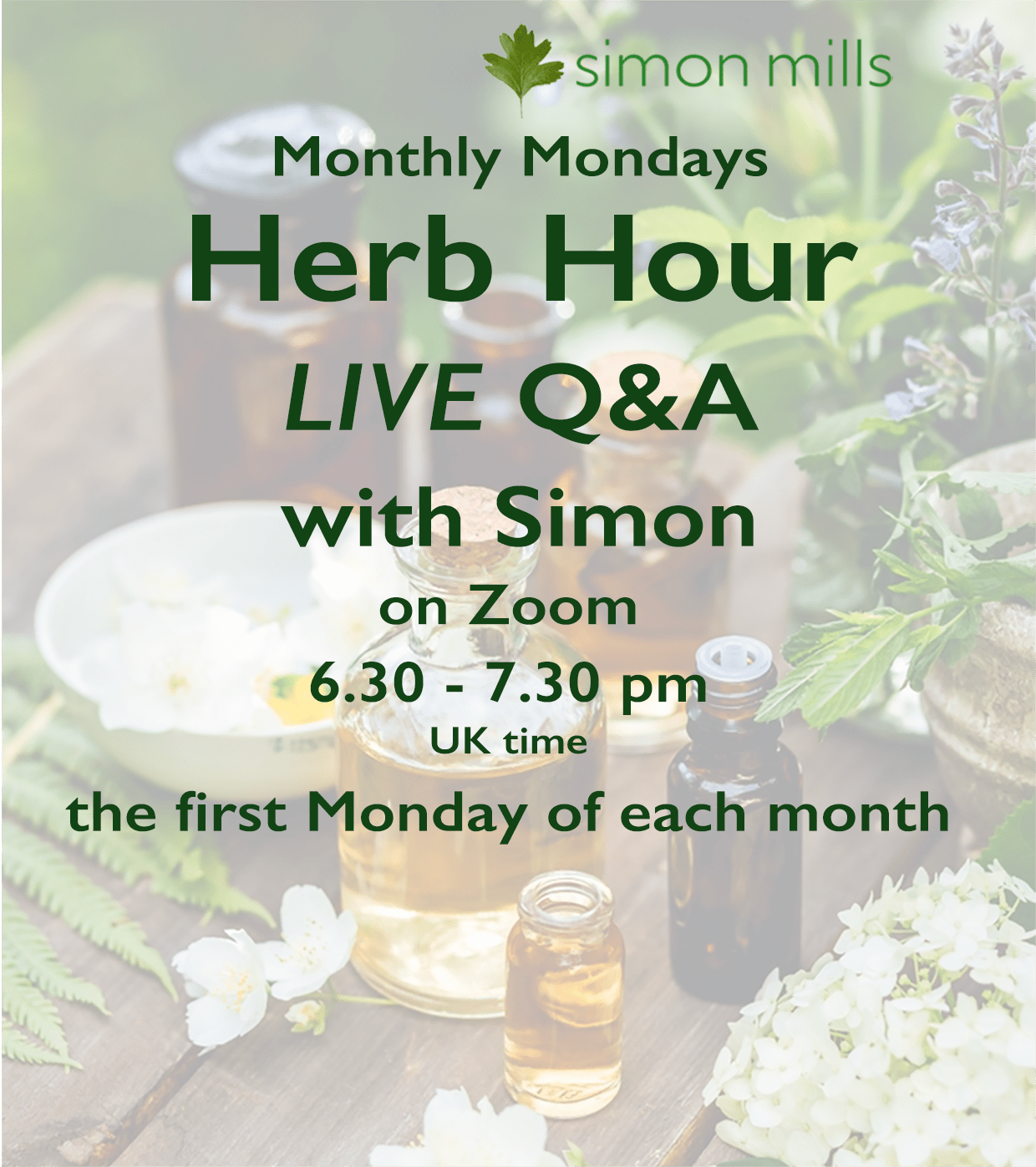

This Part 2 looks at how viruses, bacteria, and fungi can cause infections – or not! We go on to explore the plants that could help us restore the healthy checks and balances that allow us better cohabitation with these potential threats.
Reading our introductory Building immune strength can be useful to making sense of our approach to infections.. There are also other practical guides to managing allergies and immune diseases that you can also look through.
Like all the other parts of this issue this ends with a practical guide to applying the power of plants to help support you.
Articles
Articles
1. Me and germs – a partnership?
Humans and germs are in a symbiotic relationship. Microbes populate our body’s surfaces and our inner spaces. There are many more of their cells than ours. So are we human or are we microbe?! ...
2. Rethinking viruses: our trouble spotters
Viruses have had a bad press! Indeed some are dangerous or even killers, but most are dormant and a key part of our gene pool. They may also call out sick cells for removal - we even share them!...
3. A check-in on bacteria and biomes
Bacteria are microscopic single celled organisms, the planet’s most prominent life form, and very adept at evolving and adapting to all environmental changes. They like living on and in us!...
4. A fungal immersion
Fungi deserve respect. They are essential for all life and even contribute to our health. They can also be harmful. They are managed by a healthy immune system, cleaning and drying. Fungi: the...
5. The power of plants in treating infections
Plant remedies can be effective in managing many symptoms associated with bacterial, fungal and viral infections. These approaches combine first hand experience with what fits with modern research....
Disclaimer.
Each person and illness is unique and, unlike a personal health consultation, no publication can anticipate every circumstance or be appropriate for every reader. Knowledge and best practice in the health field are also constantly changing. Although the information in Plant Guides and the links to other sites is selected for its suitability for self care it is not a substitute for an individual’s health decision. Many apparently unremarkable symptoms may disguise something more serious. Especially if a problem has been longstanding or is otherwise inexplicable or alarming it can be important to use the information provided along with professional health advisors or registered medical practitioners who are better able to spot problems that need further treatment.
In obtaining herbal products, users should not assume that all products are of good quality and should read the label carefully for detailed information about safe use, and should choose responsible manufacturers with independently assured quality standards and safety monitoring procedures.
The information provided in Plant Guides is therefore not a direction to any individual treatment or herbal product, and to the fullest extent of the law, neither the publisher nor the authors, contributors or editors, assume any liability for any injury and/or damage to persons or property as a matter of products liability, negligence or otherwise, or from any use or operation of any methods, products, instructions or ideas contained in the materials.

